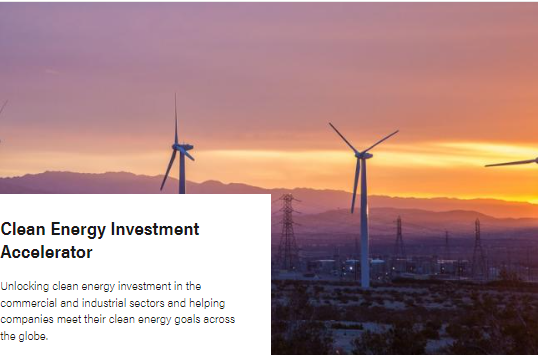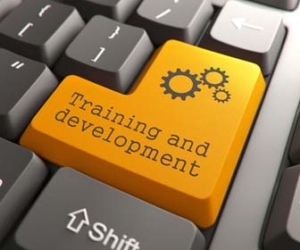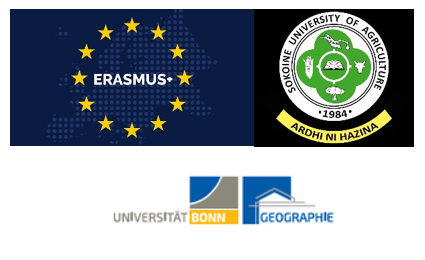CONSULTANCY: RESEARCH ASSISTANT – PRODUCTIVE USE OF RENEWABLE ENERGY
Summary
WRI intends to award a consultant a six-month fixed price contract to support the Productive Use of Energy assessments to be conducted in Kenya, Tanzania and Ethiopia.
Program Overview
There is growing evidence on the relationship between energy access (electrification) and economic development. The sustainable development goals (SDGs) attest to the same with energy being at the center of realization of all the global goals. Over the last decade, significant efforts and investments have gone to increasing access to electricity, especially for rural households and social institutions. While this has been successful, with most Sub-Saharan (SSA) countries experiencing significant growth in access rates, there is growing evidence that access alone does not result into economic development4. Moreover, there is little return on investment given the low rates of electricity consumption by non-commercial customers. In fact, average per capita electricity consumption by households in SSA stands at 124 kwh5, about 36 times lower as compared to other developed countries like the US, which stands at 4,437 kWh.
As a result, there is growing appreciation on the need to promote adoption of Productive Use of Renewable Energy (PURE) as a means of promoting economic development while building sustained demand for clean energy. PURE Programs such as Powering Renewable Energy Opportunities (PREO) are demonstrating the viability and impact of successfully implemented PURE projects. While estimates by PREO point to an annual investment need of $20 billion over the next 10 years (putting it at US$120 trillion over the next ten years – thrice the amount required to achieve global energy access across the same timeline), there is still very little investment going into the sector.
Over the last three years, WRI Africa – through its Energy for Development (E4D) programme has collaborated with local partners to implement PURE-led initiatives in Tanzania, Uganda, Kenya and Ethiopia. With additional funding, WRI-Africa intends to build on the ongoing E4D programme and aims to showcase high-priority, high-impact PURE opportunities within the agricultural sector in Kenya, Tanzania and Ethiopia with the goal of stimulating demand for PURE in the agriculture sector, thereby enhancing livelihoods and resilience of smallholder producers in Sub-Saharan Africa (SSA) by 2027.
Scope of Work and Deliverables/Outputs
- Conducting literature review on Productive Use of Renewable Energy in Sub-Saharan Africa: provide a synthesis of the current situation on PURE in SSA highlighting the successes, barriers and opportunities that exists.
- Review reports and ongoing programs and initiatives such as PREO, PULSE, SE4ALL Universal Energy Facility: Standalone Solar for Productive Use to understand their challenges and their impact levels in improving livelihoods.
- Conduct an analysis of successful investment and financing models used to implement PURE projects.
- Generate a report on the overall status of PURE projects in Africa, highlight barriers, successes and case studies of successful PURE projects
- Stakeholder Mapping and Engagement: map out all stakeholders by the various categories (e.g., financiers, project implementers, regulators etc.) who are active in the PURE space in Sub-Saharan Africa. You will be required to:
- Map out all PURE programs in Sub-Saharan Africa
- Generate an excel sheet with all the stakeholders identified, what they do and their available contacts
- Support the team in setting up meetings with select stakeholders from the long list of those identified above.
- Support Data Collection for the high impact productive use opportunities in Kenya (specifically in Makueni and Murang’a Counties) and Chamwino District in Tanzania
- Support the organization and presentations at organized workshops with stakeholders under the project
Consultant Qualifications
- Bachelor’s degree in energy, social science, or international development or relevant field
- Demonstrable knowledge and experience in the productive use of renewable energy opportunities space
- Experience working with both state and non-governmental actors
- Experience writing concise, well-structured documents (in both report and presentation formats)
- Experience in stakeholder mapping and engagements
- Experience working in multi-disciplinary teams
- Experience working with international organizations
- Good presentation skills
- Commitment to the project, including being available five days of the week.
Evaluation and Selection
The following elements will be the primary considerations in evaluating all applications submitted in response to this posting:
- Demonstrated expertise and experience in the productive use of renewable energy space.
- Understanding the project requirements
- Capacity to execute the project within the allotted timeframe
- A minimum of 3 years’ experience working on research in the energy sector.
- Price/Cost Effectiveness
- Demonstrated experience in conducting energy research and stakeholder engagements
- Ability to engage with national and sub-national governments and the state agencies
The consultant offering the best overall value will be selected. For this position, price and non-price aspects are considered to be of approximately equal importance.
Compliance Requirements: WRI receives funding from a variety of sources, including governments and other non-governmental organizations. In addition to WRI’s standard contract terms, certain funder conditions may apply.
How to Apply
Interested applicants to submit their current CVs and cover letters with their daily rates by 19 May 2023.
About Us:
Founded in 1982, World Resources Institute (WRI) is an independent, nonprofit global research organization that turns big ideas into action at the nexus of environment, economic opportunity, and human well-being. We are working to address seven critical challenges that the world must overcome this decade to secure a sustainable future for people and the planet: climate change, energy, food, forests, water, sustainable cities, and the ocean. WRI has a global staff of over 1,800 people with work spanning 60 countries. We have offices in Africa, Brazil, China, Europe, India, Indonesia, Mexico, Colombia and the United States, as well as a growing presence in other countries and regions.
The foundation of our work is delivering high-quality research, data, maps, and analysis to solve the world’s greatest environment and international development challenges and improve people’s lives. We work with leaders in government, business, and civil society to drive ambitious action and create change on the ground. Equally important, we bring together partners to develop breakthrough ideas and scale-up solutions for far-reaching, enduring impact.
Our mission and values:
WRI’s mission is to move human society to live in ways that protect Earth’s environment and its capacity to provide for the needs and aspirations of current and future generations.
Our values are shared ideals that bind us together: Integrity, Innovation, Urgency, Independence, Respect.
Our culture:
WRI is committed to advancing gender and social equity for human well-being in our mission and applies this principle to our organizational and programmatic practices. We are committed to providing equal opportunities in employment, we embrace all diversity and encourage women, the LGBTQ+ community, persons with disabilities, Afro-descendants, and Indigenous people to apply. Recognizing our strong commitment to gender equality, WRI has also been awarded EDGE certification.




